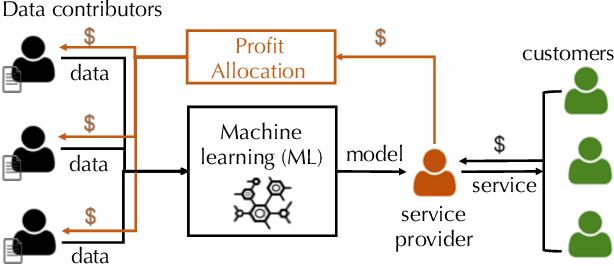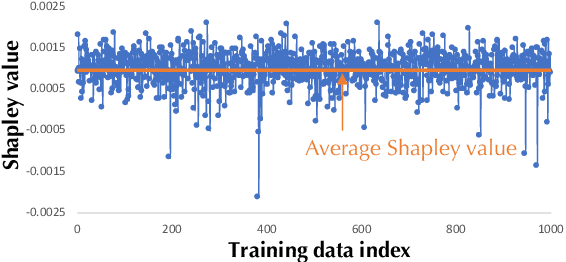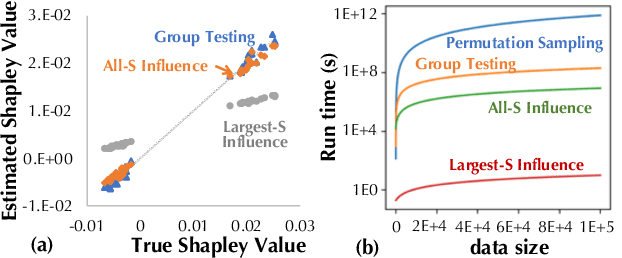Nick Hynes
Towards Efficient Data Valuation Based on the Shapley Value
Feb 27, 2019



Abstract:"How much is my data worth?" is an increasingly common question posed by organizations and individuals alike. An answer to this question could allow, for instance, fairly distributing profits among multiple data contributors and determining prospective compensation when data breaches happen. In this paper, we study the problem of data valuation by utilizing the Shapley value, a popular notion of value which originated in coopoerative game theory. The Shapley value defines a unique payoff scheme that satisfies many desiderata for the notion of data value. However, the Shapley value often requires exponential time to compute. To meet this challenge, we propose a repertoire of efficient algorithms for approximating the Shapley value. We also demonstrate the value of each training instance for various benchmark datasets.
Efficient Deep Learning on Multi-Source Private Data
Jul 17, 2018



Abstract:Machine learning models benefit from large and diverse datasets. Using such datasets, however, often requires trusting a centralized data aggregator. For sensitive applications like healthcare and finance this is undesirable as it could compromise patient privacy or divulge trade secrets. Recent advances in secure and privacy-preserving computation, including trusted hardware enclaves and differential privacy, offer a way for mutually distrusting parties to efficiently train a machine learning model without revealing the training data. In this work, we introduce Myelin, a deep learning framework which combines these privacy-preservation primitives, and use it to establish a baseline level of performance for fully private machine learning.
 Add to Chrome
Add to Chrome Add to Firefox
Add to Firefox Add to Edge
Add to Edge